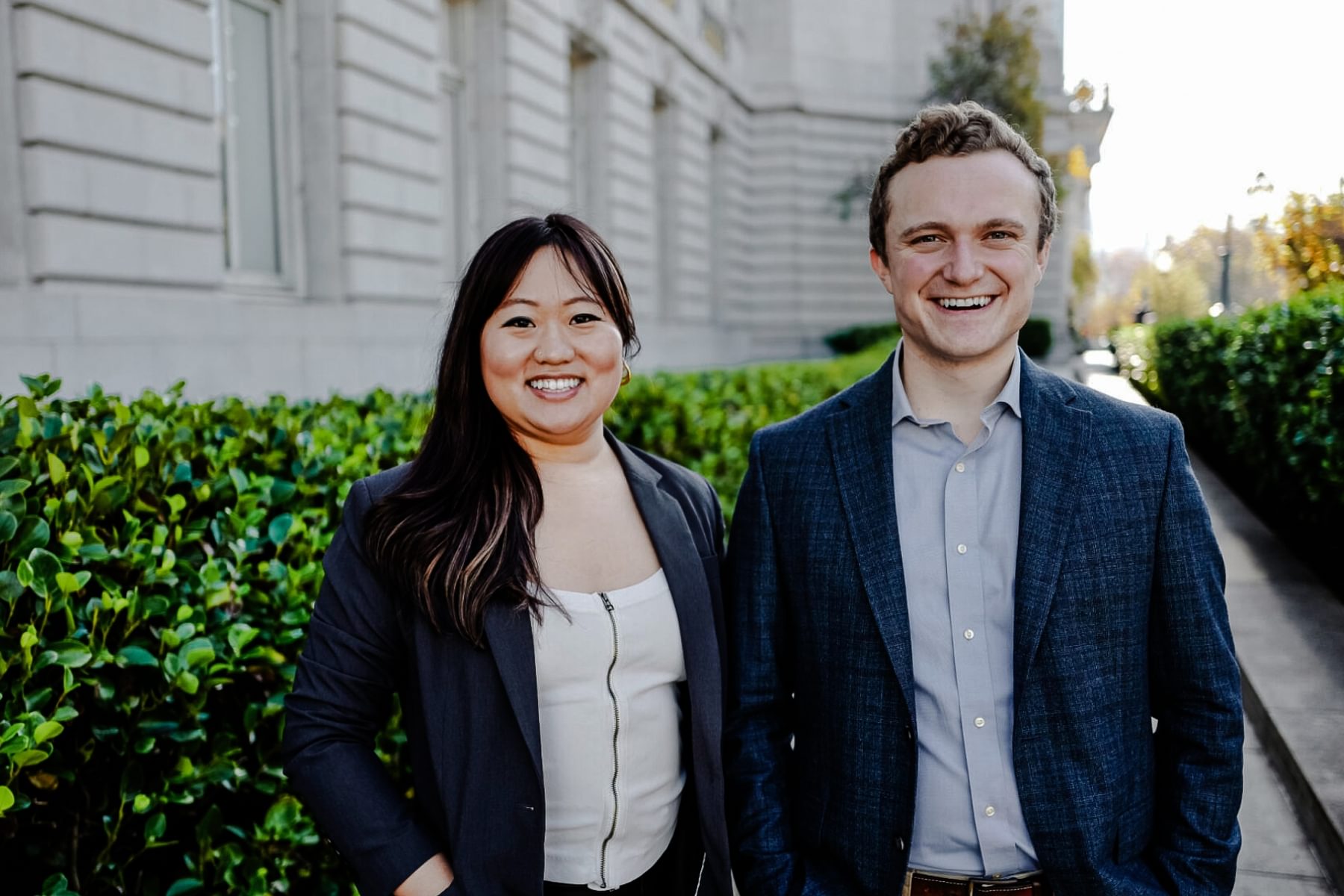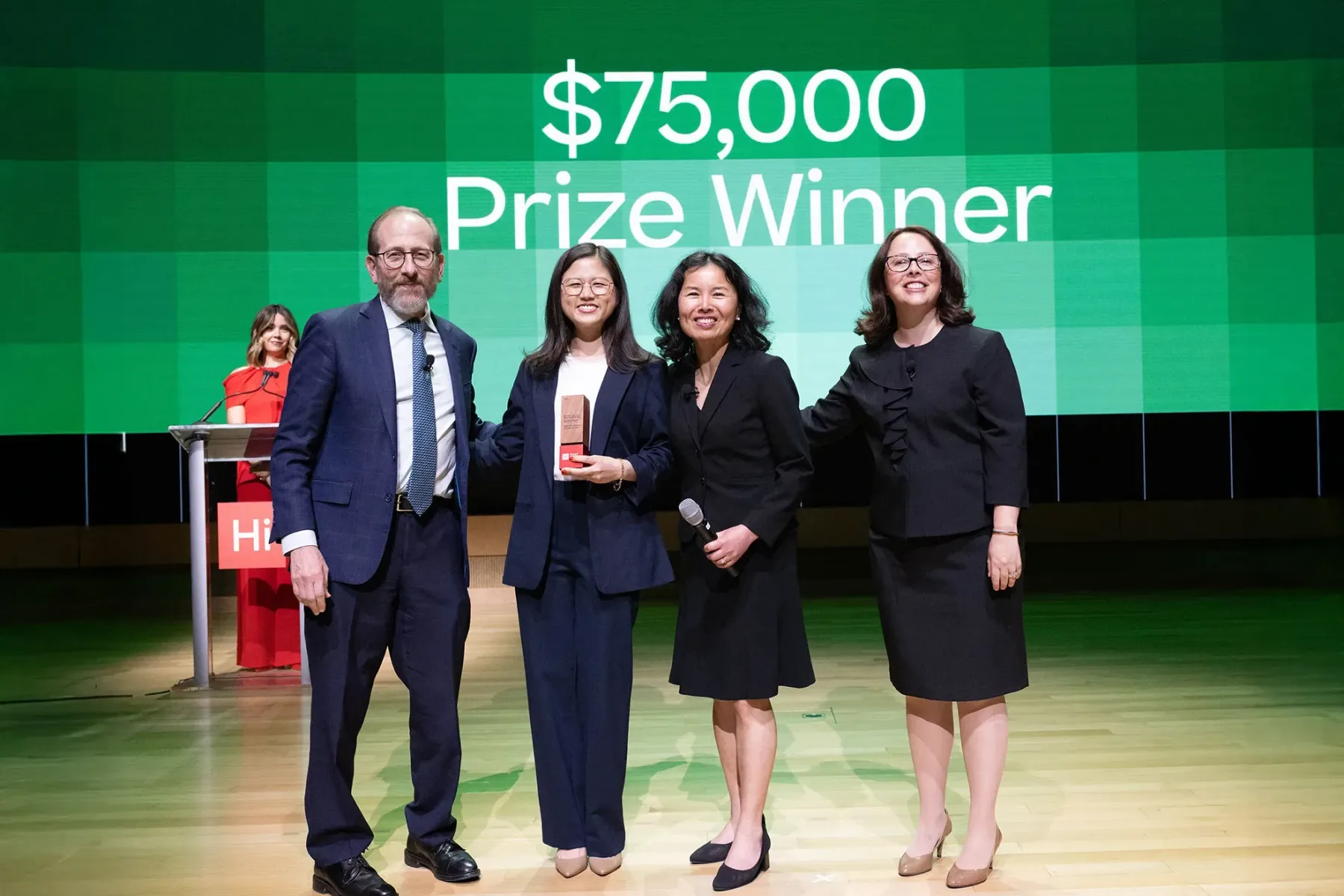In a fireside chat at the Harvard Innovation Labs this spring, Megan Smith (founder and CEO of shift7 and former CTO of the United States) shared her insights on the intersection of technology, community and empathy.
The fireside chat was part of a series of events at the Harvard Innovation Labs centered around the story of General Magic, the secretive Silicon Valley startup that created the world’s first smartphone, told through an engaging workshop program and award-winning documentary. Although their initial product failed, the technologies developed by General Magic have changed the lives of billions.
With her extensive experience across sectors, Smith provided excellent guidance for innovators and founders across industries. Here are the top takeaways from her conversation with Mitch Weiss, Richard L. Menschel Professor of Management Practice at Harvard Business School.
Innovation should put people first.
Smith believes innovation should focus on improving the human condition rather than just advancing technology. "The innovation we’re doing has to be about helping people, not just creating cool stuff," said Smith. As CTO of the United States, she organized open town halls across the country to encourage public discourse around AI implication. The events were mostly held at universities and helped kick start conversations around potential use cases of AI in sustainability, healthcare, social justice, and more.
Smith questioned, “If we're going to have this stuff, can we apply it generally across all of society and the needs we have? Why isn't there AI for more justice and more peace and less bullying and more getting food to everyone in the city, and all of these things, not just making us better workers, or replacing us.” Despite fears around AI, Smith remains optimistic about the potential for positive change in innovation when focused on building community and the future of humanity.
Community organizing is key to inclusive innovation.
Smith emphasized the importance of community building for inclusive innovation. She shared the story about a mapping project in Pakistan as an example of empowering local innovators and integrating their solutions to drive effective and sustainable change. “In six months, they drew themselves onto the map,” she said. The project enabled local communities to contribute to creating detailed maps, improving services and infrastructure in the country. Smith strongly believes in collective genius, asserting, "The key thing is recognizing the talent in everyone, and doing really provocative things to help them realize their potential."
Drawing from her experience at General Magic, Smith discussed how she witnessed firsthand the power of diverse perspectives on solving problems, where experts from various fields collaborated to develop groundbreaking technologies. "It's really about inclusive innovation and making sure everyone has a seat at the table, and their voices are heard in these conversations." In Smith’s view, we should increase the number of innovation spaces similar to the i-lab and make them accessible to people from different economic backgrounds. Collaboration across disciplines with diverse individuals can drive change through cross-pollination.
Education should ignite passion and curiosity.
Recalling her upbringing in Buffalo, New York, Smith highlighted the importance of nurturing curiosity and problem-solving skills. She shared how her teachers ignited a passion for problem-solving by recognizing talent in every student and making science fairs mandatory. Students were asked, “What do you care about, and then they would make kids take something that they were passionate about and invent something related to it.”
Smith advocates for a more integrated educational approach, encouraging students to explore diverse fields and develop a broad skill set. “Don't opt out of things because you think they're for someone else,” she advised.
In addition, Smith noted the importance of hands-on learning – "practice makes permanent" – as she recalled a project called, "Ideal Community," which involved teachers remixing their curricula to include their own passions, such as architecture tours and community ecosystem projects. Hands-on learning and interdisciplinary education better prepare students for tackling complex, real-world problems.
Prototyping is essential for turning ideas into reality.
Smith emphasized the importance of developing prototypes for early initiatives, saying, "Can you get to 40% quickly, even if it takes you forever to get to 100%?" This approach was illustrated in the project she worked on related to the Trinity Nuclear Bomb. The Trinity Nuclear Bomb was initially part of the Manhattan Project, a top-secret program created to develop the first atomic bomb during WWII. Trinity was the first nuclear weapon detonation test, conducted by the USA in 1945.
In 2023, Smith and team used historical weather data from 1945 to create a prototype that mapped the fallout from the bomb. This prototype quickly demonstrated the widespread impact of the nuclear fallout, showing that radiation reached 46 states in just 10 days, contaminating the soil and atmosphere. By leveraging existing data, the team created a compelling prototype that showcased the importance of re-evaluating the public health consequences of nuclear testing.
Smith emphasizes that prototypes serve as a bridge between concept and reality, enabling innovators to communicate their vision effectively and secure the necessary backing to move forward.
Government needs technologists.
Smith stressed the importance of civic engagement, highlighting the critical role technologists can play in addressing societal challenges. "Government is only whoever shows up," she stated, urging technologists to bring their skills to the public sector and contribute to solving significant issues.
Smith's environmental project related to the Trinity bomb serves as a prime example. By involving technologists, community members, professors, and data scientists, the project mapped the nuclear fallout and its ongoing effects, showcasing how civic engagement can lead to impactful outcomes.
Engaging in civic activities benefits society and provides technologists with unique opportunities to work on some of the most important projects and collaborate with diverse teams.





